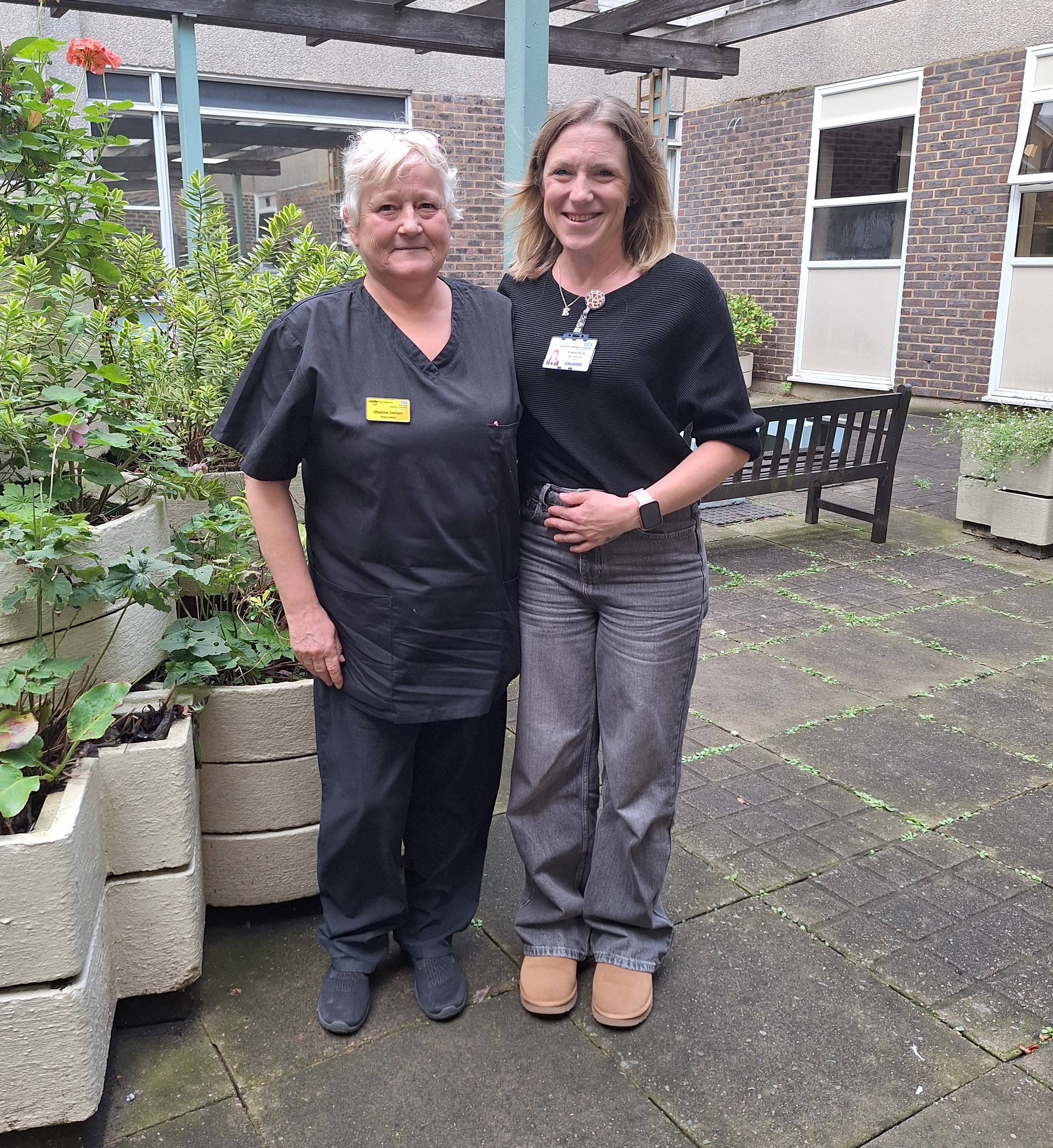
‘We treat people as if they are our relatives’
What do you do if you’re taken to hospital in an emergency, but you’re worried about your pet at home?
Or if your phone needs charging and it’s your only way to keep in touch with loved ones?
A new team in the emergency department at the William Harvey Hospital in Ashford is on hand to support patients with issues just like this – and plenty more.
Patient liaison officers Emma Dodd and Maxine Intrieri have almost 60 years of healthcare experience between them and are putting it to good use in their new roles, acting as a bridge between clinical teams and patients and their families.
Emma said: “Our job is quite simple on paper – we are here to help look after patients and make sure they are happy.
“What that involves looks different for everyone though. For some people it’s making sure they have a call with their vulnerable husband at home twice a day, for others it’s finding someone to pop in and feed their cat, and some people just want someone to talk to who will really listen.”
Maxine, who started her career at the old Ashford Hospital, and has worked in the emergency department as a healthcare assistant and technician, said:
“We do anything and everything, from helping with hygiene needs to making sure people’s phones are charged.
“You don’t lose the skills you’ve used in other roles so we can give mouth care, and make sure people are eating and drinking, but we have the time to sit with people as well to find out what they are worried about and try to resolve any problems.”
The team have everything on hand people could need, from denture adhesive and tooth brushes to nail files and clippers, and will also go to the shop to source additional items, some of which are donated by the Friends of the William Harvey Hospital.
They also liaise with other teams inside and outside the hospital, including care agencies and discharge teams to help people go home safely.
And their care extends to relatives as well, from answering queries from loved ones who can’t visit to providing toiletries for people visiting those who are critically ill who may not want to leave.
Emma said: “The best part of the job is when we have made a difference to people, whether that’s just chatting to them or helping to resolve something they are worried about.
“We don’t have a magic wand and there are things we can’t fix, but we always treat people as if they were our relatives, and think about how we would feel in their situation.”
Maxine added: “It makes your day when you are able to be an advocate for a patient and get across what their needs are.
“We can also be the eyes and ears of the department, and tackle things the nurses don’t get time to think about, such as finding specialist equipment so someone living with dementia can watch a favourite film or listen to music.
“Time is our most important asset and we love to sit and chat to people, especially if they don’t have any visitors.”
The team is slowly growing, with two new technicians taking on a patient liaison role for a day a week each, and they hope to expand further after demonstrating their impact.
Emergency department matron Laura Fox said the team had huge positives for staff and patients.
She said: “Maxine and Emma’s commitment and compassion have been central to improving communication, ensuring that families and patients feel heard, informed, and supported.
“In what is often a high-pressure environment, where emotions can run high, they’ve provided a critical bridge between our clinical teams and the people who matter most to our patients, their families.”
“We know how important clear and timely communication is, especially in moments of uncertainty, and Maxine and Emma have ensured we deliver this consistently.”
The department’s complaints have also reduced since the team was introduced, particularly those around lack of communication.